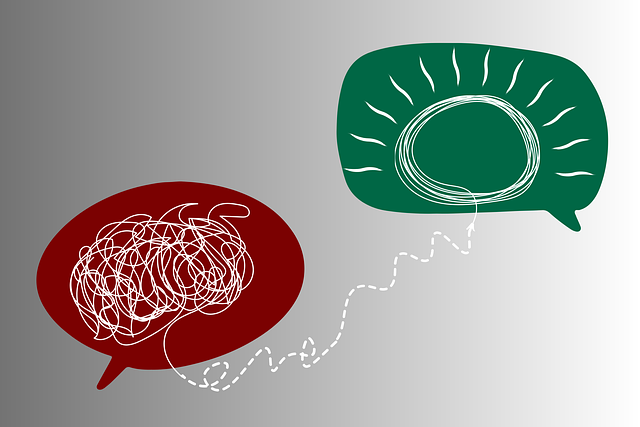In Oregon, especially within Marion County, civil commitment proceedings for individuals with severe mental illnesses are governed by a structured legal framework aimed at protecting rights and due process. Marion County advocacy groups play a critical role by providing specialized legal representation to ensure clients' interests are safeguarded throughout the complex Oregon commitment process. These advocates understand mental health law and advocate for less restrictive treatment options, preventing potential abuses of power and ensuring fairness in these sensitive cases.
In the intricate landscape of mental health care, civil commitment procedures play a pivotal role in balancing individual freedoms with community safety. This article delves into the critical aspect of protecting client interests within these sensitive situations, focusing on Oregon as a case study. We explore Oregon’s Mental Health Law and its comprehensive rights and procedures, emphasizing the essential role of legal representation. Additionally, we highlight Marion County advocacy efforts, their impact on ensuring fairness, and practical strategies for defending clients’ interests in civil commitment cases.
- Understanding Civil Commitment Proceedings: A Foundation for Client Protection
- Oregon's Mental Health Law: Rights and Procedures
- The Role of Legal Representation in Oregon Commitment Process
- Marion County Advocacy: Ensuring Fairness and Justice
- Safeguarding Interests: Strategies for Effective Client Defense
Understanding Civil Commitment Proceedings: A Foundation for Client Protection

Understanding Civil Commitment Proceedings is a cornerstone for safeguarding client interests in mental health law. In Oregon, the commitment process involves a series of legal steps where individuals with serious mental illnesses may be involuntarily committed for treatment if they pose a danger to themselves or others. This intricate process demands meticulous attention to detail and a thorough understanding of rights in mental health cases.
Marion County advocacy plays a pivotal role in ensuring fairness throughout the Oregon commitment process. Skilled legal representation is crucial, guiding clients through each phase while protecting their interests. By knowledgeable advocacy, individuals can navigate this complex landscape, ensuring they are treated fairly and have access to appropriate care under the guidance of dedicated professionals.
Oregon's Mental Health Law: Rights and Procedures

In Oregon, the Mental Health Law provides a framework for civil commitment proceedings, ensuring that individuals facing mental health challenges are afforded their rights and due process. This law outlines clear procedures for the Oregon commitment process, which is crucial in situations where an individual may be deemed a danger to themselves or others. Marion County advocacy plays a vital role in navigating these complex legal landscapes, offering support and guidance to those involved.
The rights of individuals in mental health cases are a key focus, including the right to legal representation during civil commitment proceedings. This ensures that everyone has access to justice and can challenge any proposed commitments. Understanding the Oregon commitment process is essential for both families and professionals to protect client interests effectively.
The Role of Legal Representation in Oregon Commitment Process

In Oregon, the role of legal representation is paramount in civil commitment proceedings, ensuring individuals with serious mental illnesses are afforded their constitutional rights under the state’s mental health law. Marion County advocacy groups play a crucial role in providing or connecting individuals to attorneys who specialize in Oregon commitment process. Adequate legal representation empowers clients to understand and exercise their rights during this often confusing and stressful time.
Attorneys specializing in mental health law can navigate the complexities of civil commitment proceedings, ensuring proper procedures are followed and client interests are protected. They advocate for less restrictive alternatives when appropriate, and help individuals make informed decisions about their treatment and future care. Legal representation is essential to safeguard against potential abuses or violations of rights in mental health cases.
Marion County Advocacy: Ensuring Fairness and Justice

In Oregon, particularly within Marion County, dedicated advocacy groups play a pivotal role in protecting client interests during civil commitment proceedings. These advocates ensure fairness and justice by thoroughly understanding the complexities of mental health law and the Oregon commitment process. Their expertise is instrumental in safeguarding the rights of individuals facing involuntary commitment, offering much-needed legal representation to navigate these sensitive cases.
Marion County advocacy groups provide a crucial service by educating clients on their rights within mental health cases. They offer guidance throughout the entire process, from initial assessments to court appearances, ensuring that every step aligns with Oregon’s stringent legal standards. Through their efforts, they strive to prevent abuses of power and promote humane treatment, fostering an environment where civil commitment is a measure of last resort rather than a routine practice.
Safeguarding Interests: Strategies for Effective Client Defense

In civil commitment proceedings, ensuring the protection of client interests is paramount, especially considering the sensitive nature of mental health law. Marion County advocacy plays a crucial role in safeguarding the rights of individuals involved in the Oregon commitment process. The first step towards effective client defense is thorough legal representation that understands both the nuances of mental health cases and the specific procedures in Oregon. This involves comprehensive assessments of the client’s condition, historical records review, and an in-depth understanding of their legal options and rights.
Moreover, strategic planning is essential to navigate the complexities of the commitment process. This includes timely intervention, challenging inappropriate diagnoses or treatment plans, and ensuring informed consent. By employing these strategies, Marion County advocates can effectively protect client interests, ensuring that their rights are not only recognized but also upheld throughout civil commitment proceedings.
